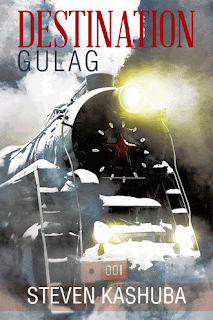Overview
With the death of Vladimir Lenin, Josef Stalin came into power and immediately moved to state control of production and distribution. The Kozlovs were branded as kulaks, their farm seized through a policy of collectivization and their crops treated as state property. Stalin interrogated, arrested, and deported dissenters in cattle cars to isolated concentration and labour camps in Siberia. They were treated like cattle, shuttled from camp to camp, fed if useful, starved if not. Unless productive, their lives were worthless to their masters.
Even though the Gulag took millions of lives, the indifference towards this phenomenon is startling. The absence of hard information backed up by archival research made it difficult to unlock the horrors of the Gulag. Archives were closed and access to camp sites was forbidden. No television or cameras ever filmed the Soviet camps or its victims.
Today, Russians seldom want to debate, discuss, or even acknowledge the Gulag. Russia has few monuments to the victims of Stalin’s execution squads and concentration camps. There is no national monument or place of mourning and no government inquiries into what happened in the past. It is as if the deportees left no footprints.
It is my fervent hope that Destination Gulag will capture the tragedy, and perhaps the triumph, of the deportation of the Kozlov family to Siberia.
Source about self publish a book










0 (mga) komento:
Mag-post ng isang Komento